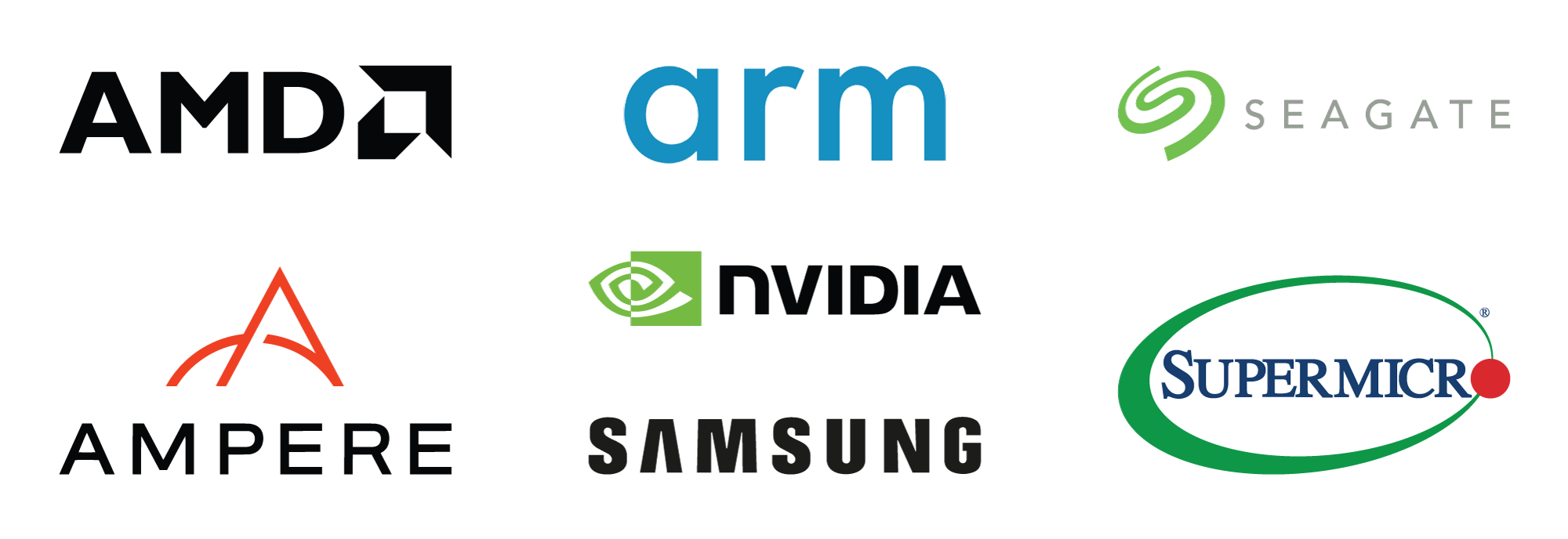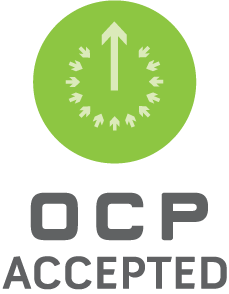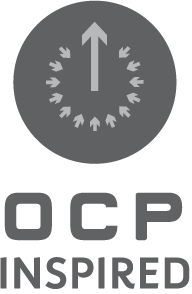Advisory Board
Introducing the OCP Advisory Board
The Open Compute Project Foundation and OCP Board of Directors (BoD) wish to add new directors to the long-standing board to foster diversity and inclusivity in other market segments and geographies. To accomplish this expansion, the initial step will be the creation of an OCP Advisory Board. The OCP Advisory Board will be a vetting process for new directors, allowing candidates to interact with the existing executive board and demonstrate their professional knowledge, thought leadership, support and influence.
Creation of the advisory board will be through an open application process that will be advertised to the entire OCP membership. All OCP members (that are not OCP Board members) have an opportunity to apply for the advisory board. However, only one nominee per company is allowed.

- Robert Hormuth, CVP, Data Center Architecture and Strategy, AMD
- Jeff Wittich, Computing Chief Product Officer, Ampere
- Eduardo (Eddie) Ramirez, VP of GTM and Ecosystem - Infrastructure, Arm
- Robert Ober, Chief Platform Architect, NVIDIA
- Sangyeun (Paul) Cho, Electronics Executive Vice President, Samsung
- Mohamad El-Batal, Chief Technologist - Systems, Seagate
- Rich Lappenbusch, Senior Principal, Supermicro
The Role of the OCP Advisory Board
The OCP Advisory Board is a group of individuals who are appointed by the OCP Foundation Board of Directors and the Foundation CEO to provide specialist and strategic advice to help solve a range of business and growth challenges. The advisors may be asked to provide advice on how to grow the Foundation, manage a significant business or technology transition, and expand into new innovative technologies, market segments and geographies.
The OCP Advisory Board will be co-chaired by an appointed BoD member and the Foundation’s CEO, and carefully selected external professionals (advisors) who are appointed based on the specialist knowledge or technical expertise as well as the market and business segments they represent.
Unlike a board of directors, the members of the OCP Advisory Board are not authorized to act or make binding decisions on behalf of the Foundation and they do not have any fiduciary responsibility. The OCP Advisory Board is not legislated or regulated by any corporate governance policies.
The OCP Advisory Board generally will meet on a semi-regular basis several times per year to support or complement the existing corporate structure. The Advisory Board will have a charter that sets out the structure, participation and operations. The tenure of an OCP Advisory Board member is two years. An OCP Advisory Board member may apply for one additional two-year term.
Expectations of the OCP Advisory Board
The co-chairs of the OCP Advisory Board will bring projects and work items to the Advisory Board for resolution or recommendations. Advisory Board members will be expected to be active participants in work items. Here are likely work items for 2024:
- How does OCP structure Foundation projects and initiatives for continued success? One example may be an initiative focused on AI collaboration.
- What type of changes or additions are needed to the OCP legal framework for the continued collaboration and scaling of contributions?
- How should OCP support or affiliate with consortiums created to develop hardware-centric cloud technologies?
- How can OCP expand its global presence and enable regional collaboration?
How is the OCP Advisory Board appointed?
The CEO and Board of Directors will use four criteria to select the Advisory Board in the open application process. Only one candidate is allowed per OCP member company.
Contribution: The company’s historical contributions to OCP:
- Employed by a company that has contributed technology and resources to OCP
- Person has held leadership positions in OCP or other collaborative organizations
- Employed by a company that has a history of sponsorship
- OCP Tiered Members (Platinum, Gold, Silver) will be given priority
Leadership: The ideal candidate should demonstrate these types of skills and experience:
- Technologist: Professional career has focused on the leading-edge of industry technology trends
- Collaborator: Ability to connect & collaborate well with many organizations and have a history of persuasive & passionate advocacy for open-source technologies
- Business Acumen: Knowledge of collaborative design processes, manufacturing models, supply chain & sales channels necessary to enable and drive deeper adoption of open-source globally
- Legal Experience: Experience in IP policy, open source licensing & the legal frameworks for multi-company collaboration (bylaws, governance, best practices)
- Global Experience: Experience in growing worldwide community engagement & membership
Segment: The company represents one of the business segments or types of business that offer diversification with the existing OCP Board:
- End-User companies (e.g. Cloud Tier 2, Enterprise, Telecom, High Performance Computing)
- Silicon and IP Provider Companies
- IT Infrastructure Equipment Providers
- DC Physical Infrastructure Providers
Diversity: The goal of the Advisory Board is to be an inclusive group and have geographic diversity with global representation.
The OCP Board will vote on the applications received via anonymous ranked choice voting.
Important Dates:
The application process will open on January 10, 2024, and remain open until February 7, 2024. Applicants will be notified before March 4, 2024, on whether they were selected (or not) for the Advisory Board. There are four meetings planned for 2024, including face-to-face meetings at the Regional Summit and the Global Summit.
OCP Accepted and OCP Inspired


Look for products that have an OCP Accepted or OCP Inspired icon.
Products that carry the OCP Accepted recognition comply 100% with an OCP approved specification and the design files are open sourced and available.
OCP Accepted or OCP Inspired products have been demonstrated and meet 3 or more of the OCP tenets-efficiency, openness, impact & scale. They can only be sold with warranty and support.
OCP Ready
The OCP Facility Recognition program is intended to brand your facilities to be OCP Ready. Guidelines were created by our Data Center Facility Project Team and serve as a reference for data center operators and tenants who want to understand the fundamental facility requirements to deploy this gear into their IT space. Facilities that meet these guidelines and approved by the OCP DC Facilities Project receive the certification as an OCP Ready facility.
